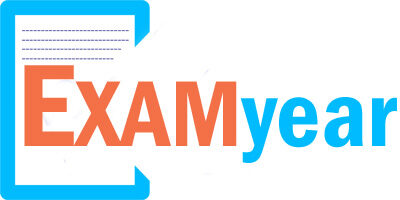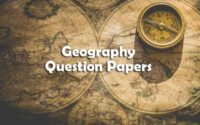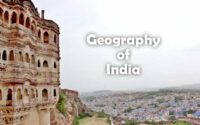MPSC Geography Questions and Answers
MPSC Geography Questions paper pdf for examination is given below. Maharashtra Public Service Commission geography question papers direct download links are given in this section. Hence, download the MPSC Geography Previous Paper pdf below.

Maharashtra Public Service Commission Geography Previous Papers Pdf help the applicants in their preparation. MPSC Geography previous papers are available here to download. This is the good news for the candidates who are preparing for Maharashtra Public Service Commission.
Aspirants can download Maharashtra Public Service Commission Model Papers on Geography pdf through online mode. Applicants who are preparing for Maharashtra Public Service Commission written exam can download MPSC Geography Sample questions from our website for free.
Questions and Answers on Geography for MPSC
1. A pair of Geomorphologist that contributed to the concept of base level of erosion is :
(A) A. Penk and W.M. Davis
(B) G.K. Gilbert and G.E. Dutton
(C) Lyell and Ramsey
(D) Powell and Greenwood
2. Which of the following is not a form of chemical Weathering?
(A) Chelation
(B) Oxidation
(C) Carbonation
(D) Corrosion
3. Transverse faults along the plate boundaries indicate …. …
(A) subsidence of both the plates
(B) subsidence of the higher plate
(C) absense of vertical displacement
(D) uplift of both the plates along plate boundaries
4. Identify the pair of landforms produced by the glacial deposition :
(A) Cirques and Aretes
(B) Mattern Horn and Roche Montane
(C) Eskers and Kames
(D) Sawtooth Ridges and Tarn
5. Which of the following is not a result of endogenic forces?
(A) Graben
(B) Horst
(C) Residual Mountain
(D) Rift Valley
6. In which of the following types of precipitation the size of drop is less than 0.5 millimeter?
(A) Rain
(B) Drizzle
(C) Hail
(D) Snow
7. Mid latitudinal cyclones develop in conjunction With the ……………. .. .
(A) Polar Front
(B) Meritime Front
(C) Tropical Front
(D) Equatorial Front
8. Climate, Where evaporation exceeds precipitation and there is constant Water deficiency is designated by Koppen as ………………….. .. types of climate.
(A) C
(B) A
(C) B
(D) D
9. The rate at Which temperature of a rising and expanding air parcel decreases is called the ……………. ..
(A) Environmental Lapse Rate
(B) Adiabatic Lapse Rate
(C) Normal Lapse Rate
(D) Katabatic Lapse Rate
10. Reflection of a substance, expressed of incident radiation as percentage reflected is :
(A) Advection
(B) Aerovane
(C) Albedo
(D) Azores
11. In terms of geographical extent the ocean deposits Which has the largest coverage is ……………………… .. deposits.
(A) Calcareous
(B) Globigerina
(C) Redclay
(D) Radiolarian
12. Which one of the following seas does not have land boundaries?
(A) Red Sea
(B) Adriatic Sea
(C) Sargasso Sea
(D) Aegean Sea
13. __________ of the wave determined by dividing the length of a Wave by the period
(A) Velocity
(B) Frequency
(C) Fetch
(D) Amplitude
14. Hartshorne’s several articles and finally the book — “Perspective on the Nature of Geography” was Written in reaction to the Work of ……………….. ..
(A) Ackerman
(B) Haggett
(C) Sauer
(D) Schaefer
15. The 1960’s approach of geography as spatial science Was identified with language and method of :
(A) Ecosystem
(B) Environment
(C) Geometry
(D) Landscape
16. Who among the following remarked : “We must ask the earth herself for her laws.”
(A) Humboldt
(B) Ritter
(C) Ratzel
(D) W.M. Davis
17. In 1970s the …. school approach emerged as a strong critique of spatial organisation paradigm in Human Geography.
(A) Regional
(B) Welfare
(C) Areal Differentiation
(D) Locational
18. Which of the urban form models focuses on transportation arterials?
(A) Sector model
(B) Concentric model
(C) Peripheral model
(D) Multiple nuclei model
19. Global population witnessed accelerated increase approximately 200 years back due to :
(A) Green Revolution
(B) Agricultural Revolution
(C) Industrial Revolution
(D) Medical Revolution
20. According to Central Place theory of settlements, hierarchy is conceived as a systematic arrangement of the settlements on the basis of ……………. .. .
(A) Functional interlinkages
(B) Size of the service areas
(C) Size of threshold population, range of the function and nodality
(D) Flow of goods, services and information
| RRB NTPC | AFCAT |
| TNPSC | SSC CHSL |
| MPSC | SSC CGL |
| UPSC | WBCS |
| CDS | BPSC |
21. A suburb is :
(A) an outer comrnutating zone of an urban area
(B) associated With social homogeneity and a life style suited to family needs
(C) the spread and growth of cities
(D) both (A) and (B)
22. Find out the correct descending sequence of continents on the basis of crude birth rate :
(A) Africa, Asia, Latin America, Europe
(B) Africa, Latin America, Asia, Europe
(C) Latin America, Africa, Asia, Europe
(D) Europe, Latin America, Africa, Asia
23. The Brazilian plateau is rich in :
(A) Petroleum
(B) Iron ore
(C) Nickel
(D) Copper
24. The model of agricultural location given by Von Thunen is based on ………………… .. technique.
(A) Normative
(B) Empirical
(C) Multi-element
(D) Single element
25. A topological graph of the transport network neither related to ………….. .. nor direction.
(A) Index
(B) Scale
(C) Flow
(D) Axis
26. Which of the following is not a foot loosing industry?
(A) Iron and steel industry
(B) Sugar industry
(C) Cotton textile industry
(D) Rice milling industry
27. Two malls X and Y having equal market attraction are equidistant in kilometers but reachable in 15 and 25 minutes on feet, respectively. Suresh’s decision to visit mall X would therefore illustrate the principle of ……………….. .. .
(A) Distance decay
(B) Profit maximization
(C) Economic rationality
(D) Clientele loyalty
28. Overpopulation is equated with :
(A) the first stage of the demographic cycle with high fertility rates
(B) areas of high birth rates
(C) areas of imbalanced fertility rates and dependency ratios
(D) with a continuing imbalance between the numbers of people and carrying capacity of the land
29. Mac Mahon line, which was decided between the British and the Tibeteans as the boundary between India and Tibet passes through :
(A) Purvanchal Himalayas
(B) Nepal and Sikkim Himalayas
(C) Kumaun Himalayas
(D) Kashmir Himalayas
30. Which of the following is not an indicator of the cultural landscape?
(A) Housetype
(B) Kinship
(C) Size of Settlements
(D) Transport
31. Genetic classification of boundaries was proposed by ……………… .. .
(A) Ritter
(B) Hettner
(C) Hartshorne
(D) Ratzel
32. The Khasis of Meghalaya Plateau speak a language that is classified under :
(A) Mon-Khner group of language
(B) Indo-Aryan Family of languages
(C) Dravidian Family of languages
(D) Sino-Tibetan Family of languages
33. Who among the following gave spatial perspective to growth pole theory?
(A) Francis Perroux
(B) Walter Isard
(C) M.N. Pal
(D) Boudeville
34. An area delineated on the basis of general similarity of land characteristics and occupancy is called as :
(A) Space
(B) Landscape
(C) Region
(D) Area
35. The division of India into administrative states, districts and blocks etcetra for development planning is called …………….. .. .
(A) Sectoral development
(B) Multilevel planning
(C) Micro-level planning
(D) Area planning
36. The regional disparities can be narrowed down over a time when …………. .. .
(A) it is ensured that the rate of development of the backward areas is greater than the rate of development of other areas
(B) Preference is given to most developed areas
(C) Emphasized for equal Weightage to all regions
(D) Allocation of less grants to lagging areas
37. The minimum sales volume needed to support a business is called :
(A) Range
(B) Core
(C) Threshold
(D) Optimum business benefit
38. Kamet peak lies closer to which of the following glacier?
(A) Gangotri
(B) Pindari
(C) Siachin
(D) Rimo
39. Which of the following statement is not correct?
(A) The Himalayan ranges act as a barrier to the cold Winds blowing down from Central Asia
(B) Himalayan ranges acted as a barrier to the free movement of people in the past
(C) The Himalayan ranges are a large storehouse of marine fossils
(D) The Himalayan ranges Were formed during Hercynian Orogeny
40. Tamil Nadu receives much of its rainfall through the ……………. ..
(A) South-West Monsoon
(B) Western Disturbances
(C) North-East Monsoon
(D) Tropical Cyclones
41. Sequentially, in terms of cotton cultivation top three states are …… .. .
(A) Gujrat — Maharashtra —Andhra Pradesh
(B) Andhra Pradesh — Gujrat —Maharashtra
(C) Maharashtra — Andhra Pradesh — Gujrat
(D) Maharashtra — Gujrat — Andhra Pradesh
42. Population density map uses …………… .. type of data.
(A) Nominal
(B) Hierarchical
(C) Differentiated
(D) Ratio
43. If the universe has heterogenous composition, a ………………… .. sampling is preferred.
(A) Systematic linear
(B) Stratified random
(C) Systematic block
(D) Random grid
44. Basic aim of a thematic map is …………………
(A) To show distribution of variable(s)
(B) To analyse the spatial pattern that emerge
(C) To show numeric information in visual form
(D) To show what exists and where it exists
45. Which of the following is not a measure of dispersion?
(A) Quartile deviation
(B) Variance
(C) Standard deviation
(D) Standard score
46. The spatial resolution of LISS 1 sensor was …………….. .. .
(A) 165 m
(B) 30 m
(C) 72.5 m
(D) 5 m


